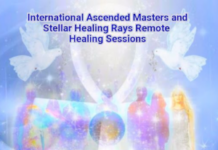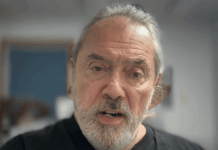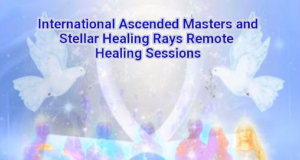The resurgence of psychedelic research has brought to light remarkable findings about the potential of psilocybin, a compound found in psychedelic mushrooms, to address severe mental health challenges. Recent studies published in Nature Mental Health and The American Journal of Psychiatry shed light on the profound effects of psilocybin-assisted psychotherapy for cancer patients and individuals with alcohol use disorder.
Psilocybin Therapy: A Breakthrough for Cancer Patients
For cancer patients, the psychological toll of their diagnosis often includes debilitating anxiety, depression, and existential distress. A groundbreaking study conducted at NYU Langone Health revealed that psilocybin when paired with psychotherapy, can significantly alleviate these mental health symptoms.
“Our findings suggest that the mental health benefits of psilocybin therapy for cancer patients may reach far beyond what we have previously understood,” stated Dr. Petros Petridis, the study’s lead author. The study demonstrated that a single or double dose of psilocybin, coupled with structured psychotherapy sessions, reduced anxiety, depression, and obsessive thoughts while promoting emotional resilience. These improvements lasted up to six months post-treatment.
Key Findings
The study analyzed data from two clinical trials involving 79 participants diagnosed with cancer.
Participants who received psilocybin experienced a notable reduction in psychological distress compared to those given a placebo.
The therapy caused no lasting adverse effects such as paranoia or psychosis, emphasizing its safety under medical supervision.
Dr. Stephen Ross, the study’s senior author, highlighted the importance of these findings: “This analysis adds to the mounting body of evidence that psilocybin can be safely administered under close medical supervision.”
Transforming Lives: Psilocybin and Alcohol Use Disorder
A separate study explored the transformative potential of psilocybin therapy for individuals struggling with alcohol use disorder. Conducted by the same team at NYU Langone Health, this research revealed lasting positive personality changes in participants.
The study’s lead author, Dr. Broc Pagni, explained, “The personality changes brought about by psilocybin-assisted psychotherapy may help those recovering from alcohol dependence remain resilient to stressors known to trigger relapse.” These changes included reduced impulsivity, vulnerability, and increased emotional openness and acceptance.
Notable Outcomes
Researchers examined data from a clinical trial involving 83 participants with alcohol dependence.
Participants who received psilocybin displayed reduced depression and impulsivity, coupled with heightened emotional resilience.
Personality changes were observed up to eight months after treatment, with men showing greater emotional positivity and women exhibiting increased openness.
Dr. Michael Bogenschutz, senior author of the study, emphasized the broader implications: “These findings may pave the way for future research into psilocybin’s applications for other substance use disorders, such as opioid addiction.”
How Psilocybin Works
Psilocybin, a naturally occurring compound in psychedelic mushrooms, induces altered states of consciousness marked by heightened emotions, shifts in perception, and profound introspection. Many study participants reported experiences of deep personal and spiritual significance, which are thought to contribute to the therapeutic effects.
While psilocybin is generally well-tolerated, it can elevate heart rate and blood pressure and may cause overwhelming psychological effects if not administered in controlled settings. For this reason, researchers stress the importance of medical supervision and comprehensive psychological preparation.
The Road Ahead for Psychedelic Research
Despite the promising results, researchers acknowledge the need for further exploration. Questions remain about the mechanisms underlying psilocybin’s therapeutic effects and the reasons behind observed gender differences in personality changes. Additionally, the potential for broader applications—such as treating opioid use disorder—is a compelling avenue for future studies.
Funding and Collaboration
Prominent institutions, including the Heffter Research Institute, the National Institutes of Health, and private foundations supported these studies. Collaborators from Yale University, Johns Hopkins University, and Arizona State University contributed to the research, underscoring the collective effort to advance this promising field.
Practical Tips for Those Interested in Psychedelic Therapy
While psilocybin therapy is not yet widely available outside clinical trials, here are actionable steps for individuals seeking mental health support:
Research Licensed Trials: Look for legitimate clinical trials on platforms like ClinicalTrials.gov to ensure safety and credibility.
Consider Traditional Psychotherapy: If psilocybin therapy is not accessible, cognitive-behavioral therapy (CBT) and mindfulness-based approaches can offer substantial benefits for anxiety, depression, and addiction.
Educate Yourself: Understanding the science and potential risks of psychedelic therapy is crucial. Books like How to Change Your Mind by Michael Pollan can provide valuable insights.
Support Advocacy Efforts: Organizations like MAPS (Multidisciplinary Association for Psychedelic Studies) are working to make these therapies more accessible. Supporting their work can accelerate progress.
Consult Medical Professionals: Discuss your options with a trusted healthcare provider before pursuing any experimental treatment.
Final Thoughts
The findings from these recent studies highlight the transformative potential of psilocybin-assisted psychotherapy for addressing deep-seated mental health challenges. As research advances, this approach may soon become a cornerstone of mental health treatment, offering hope to millions worldwide. In the meantime, staying informed and exploring existing therapeutic options can be a powerful step toward healing and resilience.
From wakeup-world.com
Disclaimer: We at Prepare for Change (PFC) bring you information that is not offered by the mainstream news, and therefore may seem controversial. The opinions, views, statements, and/or information we present are not necessarily promoted, endorsed, espoused, or agreed to by Prepare for Change, its leadership Council, members, those who work with PFC, or those who read its content. However, they are hopefully provocative. Please use discernment! Use logical thinking, your own intuition and your own connection with Source, Spirit and Natural Laws to help you determine what is true and what is not. By sharing information and seeding dialogue, it is our goal to raise consciousness and awareness of higher truths to free us from enslavement of the matrix in this material realm.
 EN
EN FR
FR


























